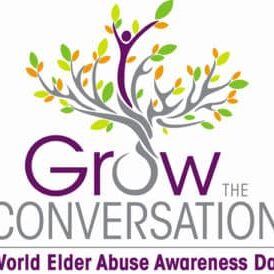Medicare’s Open Enrollment Period runs from October 15th through December 7th each year. This is a great time to take stock of your current coverage and research plans, unfortunately it’s also a time to be hyper vigilant about scams. In 2023 Medicare scams were responsible for a loss of $61.5 million in Michigan alone! Today on the blog we’re going to explore common Medicare enrollment scams and common tactics to look out for.
Common Medicare Scams
- False Billing Scam– once they have your information, scammers bill Medicare for treatments and products that the older adult doesn’t need. A common example of this is older adults being charged for diabetes treatments when they do not have diabetes and never received any diabetes products.
- Free Product Scam– scammers offer older adults free medical supplies, medication, or other products to entice them to share their Medicare information.
- Free Genetic Testing Scam– similar to the above example, scammers offer free genetic testing and screenings that were not ordered by the older adult’s doctor to get the older adult’s Medicare information.
- Card Replacement Scam– Medicare did replace cards in 2018-2019. Scammers may call to tell you that you need a new card or to ask for the numbers on your new card to activate it or confirm you got the card.
- Threats of canceling coverage– remember that the Medicare prescription drug benefit is voluntary and can’t be taken away because you didn’t respond to a call fast enough.
- Medicare Refund Scam– scammers claim that an older adult qualifies for a refund and asks for their Medicare number (and sometimes even their bank account information) to process the “refund.”
What can I do to protect myself?
- Delete emails from addresses you don’t recognize and don’t click on suspicious links.
- Be wary of anyone who contacts YOU to enroll in Medicare. Medicare will never call you directly.
-
- Keep in mind that scammers can change their caller ID to appear like a legitimate caller.
-
- Not sure if Medicare is really calling you? Hang up and call them directly. This may seem like bad phone etiquette, but it’s a great way to protect yourself.
- Look at mailers that appear to be from the government with a critical eye. Sometimes there’s a disclaimer in the small print that the mailer is a private company promotion.
- Be wary of people who offer enrollment gifts. It’s illegal to offer a gift or otherwise entice someone to sign up for a federal healthcare program like Medicare.
- If you decide to go through an insurance agent, make sure they’re licensed by the state of Michigan. A telltale sign of a scammer is charging an enrollment fee.
- Go through your benefits statements regularly and call Medicare if you notice something incorrect or suspicious.
- Report scams as soon as possible!
Where can I turn if I need help with signing up for Medicare?
- AgeWays (800) 852-7795
- Catholic Social Services of Washtenaw County (734) 971-9781, Ext. 8
- Chelsea Senior Center (734) 475-9242
- Dexter Senior Center (734) 426-7737
- Jewish Family Services of Washtenaw County (734) 769-0209
- Manchester Community Resource Center (734) 428-7722
- Michigan Medicare Assistance Program 1-800-803-7174
- Turner Senior Wellness Program (734) 998-9353
- Washtenaw Health Project (734) 544-3030
- Ypsilanti Senior Center (734) 483-5014
- You can also contact Medicare directly with questions about Part A or Part B at 1-800-MEDICARE
How can I report scams?
- You can report scams directly to Medicare by calling 1-800-MEDICARE
- Call the US Health and Human Service’s Fraud Hotline 800-447-8477
- Submit a report to the Federal Trade Commission (FTC)
- AARP Fraud Watch Network Helpline 877-908-3360
-
- Provides free support and guidance on next steps once you’ve been targeted by a scammer.
What should I do if I’ve been scammed?
- Take action as soon as possible!
- Call Medicare at 1-800-MEDICARE
- File a Complaint with the US Department of Health and Human Services Office of the Inspector General






